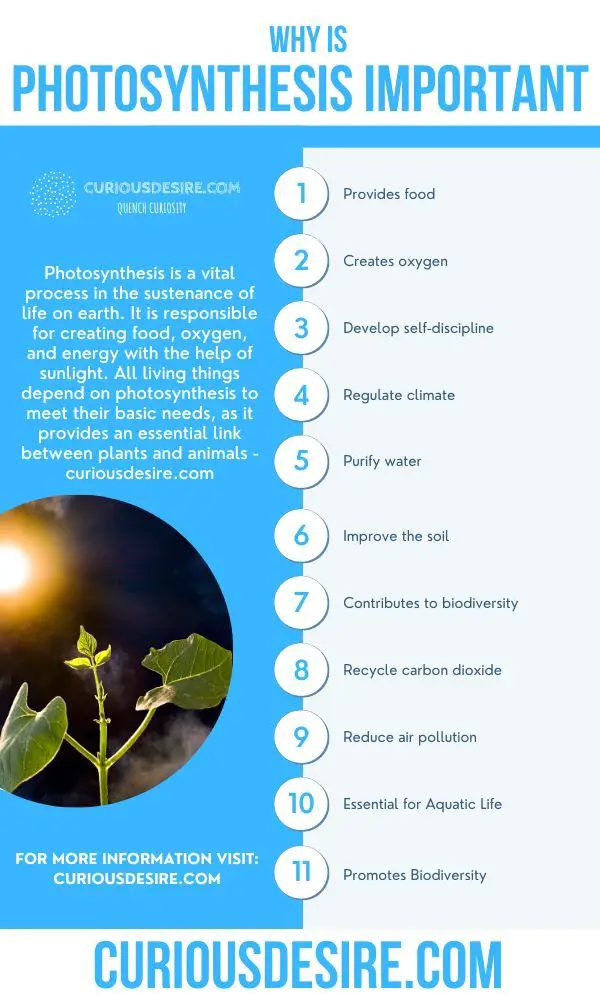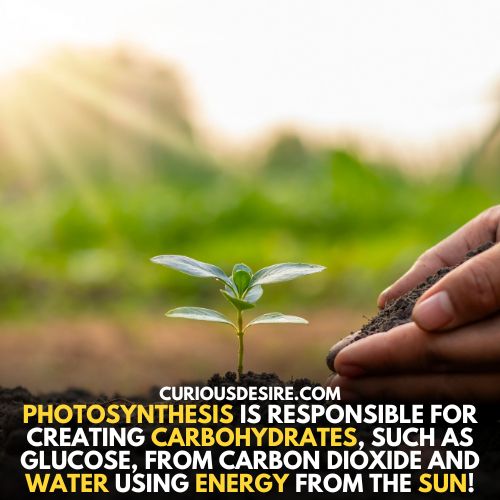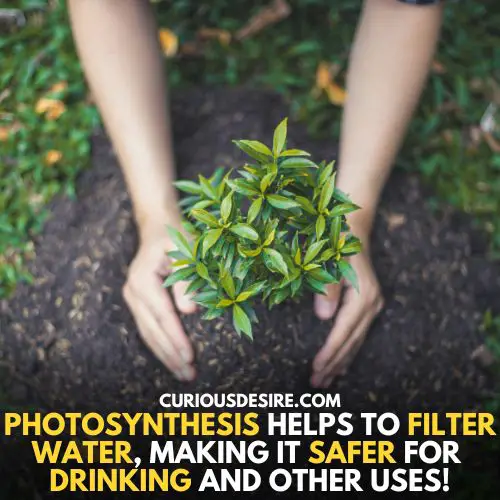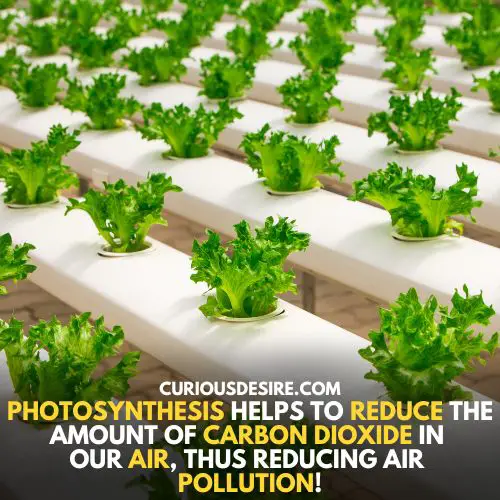Photosynthesis is a vital process in the sustenance of life on earth. It is responsible for creating food, oxygen, and energy with the help of sunlight. All living things depend on photosynthesis to meet their basic needs, as it provides an essential link between plants and animals.
Here are 15 reasons why photosynthesis is so important:
15 Benefits of Photosynthesis for Life
Photosynthesis is essential for life and the continued existence of all living organisms. It is significant for plants and animals. The following are 13 reasons why is photosynthesis important:
1. Photosynthesis provides food
Photosynthesis is responsible for creating carbohydrates, such as glucose, from carbon dioxide and water using energy from the sun. It is essential for the sustenance of life on earth and provides an essential link between plants and animals.
The carbohydrates created from photosynthesis are then used as the basis of food for many other organisms. Plants use the energy from sunlight to convert carbon dioxide from the atmosphere along with water into oxygen and glucose, with oxygen being released into the atmosphere.

2. Photosynthesis creates oxygen
Photosynthesis releases oxygen into the atmosphere, which is vital for most living organisms. Oxygen makes up about 21 per cent of the air we breathe and is necessary for respiration and other metabolic processes in all animals, including humans.
As part of the photosynthesis process, oxygen is released into the atmosphere. This oxygen is used by animals and other organisms for respiration. Without this oxygen, life on earth would not be able to exist.

3. It helps regulate climate
The importance of photosynthesis in regulating climate cannot be overstated. The carbon dioxide absorbed by plants during photosynthesis helps to cool the planet by reflecting some of the sun’s rays away from it.
This process is known as the ‘greenhouse effect’, and it helps to keep our planet at an optimal temperature for life. Without photosynthesis, the planet would become too hot and life on earth would be impossible.
4. Photosynthesis creates energy
The process of photosynthesis produces energy in the form of ATP (Adenosine triphosphate). This energy is used for various cellular activities like growth and repair.
How Photosynthesis creates energy?
Photosynthesis is an essential process in the sustenance of life on earth and is responsible for creating food, oxygen, and energy with the help of sunlight. During photosynthesis, plants use the energy from sunlight to convert carbon dioxide from the atmosphere along with water into oxygen and glucose, with oxygen being released into the atmosphere.
The carbohydrates created from photosynthesis are then used as the basis of food for many other organisms. Photosynthesis also produces energy in the form of ATP (Adenosine triphosphate), which is used for various cellular activities like growth and repair.
Photosynthesis is also responsible for the production of other energy sources like biomass, biofuels and biogas. These are used to power homes and businesses around the world.
5. Photosynthesis provides nutrients
The carbohydrates, proteins, and lipids created by photosynthesis are the basis for many other organisms’ diets. This includes both plants and animals in order to get the proper nutrients they need.
The process of photosynthesis helps to cycle nutrients like nitrogen, phosphorus and other minerals through the environment. These essential elements are necessary for life, so their availability is important for the continued existence of living organisms. As plants use these elements, they are released for other organisms to use.
6. Photosynthesis helps purify water
The process of photosynthesis helps to filter water, making it safer for drinking and other uses. The oxygen created during the process is consumed by aquatic organisms and used in respiration, thus making it possible for a healthy aquatic ecosystem to exist.
It plays an important role in the water cycle. The evaporated water from plants gets released into the atmosphere, where it then condenses and falls back to earth as rain. This helps maintain a balanced level of freshwater on our planet.

7. Photosynthesis helps improve the soil
The process of photosynthesis helps to enrich the soil by releasing vital elements such as nitrogen, phosphorus and other minerals into it. These nutrients help promote healthy plant growth and can also help regenerate degraded soils.
It also helps increase the organic matter content of the soil, which improves its ability to hold water and nutrients. This is important for sustaining healthy crops and vegetation, both of which are necessary for life on earth.
8. Photosynthesis contributes to biodiversity
Photosynthesis is essential for maintaining a diverse range of plant species on earth. Different plants require different environments and conditions to survive, so photosynthesis helps create new habitats and ecosystems.
By providing a variety of habitats, photosynthesis helps promote biodiversity, which is essential for the functioning of our planet’s natural cycles.
9. It provides raw materials for other processes
Photosynthetic products are also used as starting points for other processes, such as cellular respiration or fermentation. In this way, photosynthesis provides the raw materials needed for other activities happening in our environment.
This process also helps to recycle carbon, which is essential for the global carbon cycle and helps maintain a balanced level of atmospheric CO2. Without photosynthesis, other processes, such as respiration, would not be possible.
10. It helps recycle carbon dioxide
The carbon dioxide absorbed by plants during photosynthesis is released back into the atmosphere through respiration, transpiration and decomposition of organic matter. This helps maintain the balance of carbon dioxide in our atmosphere.
It can also help mitigate the effects of climate change, as increased photosynthesis can help absorb more carbon dioxide from the atmosphere. This is one of the major benefits of green plants and why they are so important for a healthy planet.

11. Photosynthesis helps reduce air pollution
During photosynthesis, plants absorb carbon dioxide from the atmosphere and release oxygen. This helps to reduce the amount of carbon dioxide in our air, thus reducing air pollution and resulting in a cleaner environment.
In addition, plants can also take up other pollutants like nitrogen oxides and sulfur dioxide from the atmosphere through their leaves and roots and convert them into harmless substances. This helps make our air cleaner, healthier, and more breathable.
12. It helps regulate climate change
The process of photosynthesis helps to regulate global temperatures as plants absorb and store large amounts of carbon dioxide from the atmosphere. This helps reduce the amount of heat trapped in our atmosphere, which can help mitigate the effects of global warming.
Photosynthesis also affects other climate-related processes, such as the water cycle, which is essential for our planet’s health. By helping to regulate climate change, photosynthesis helps ensure that our planet continues to sustain life.
13. Photosynthesis keeps our environment healthy
Photosynthesis is essential for the growth and health of our environment. It helps create new food sources and nutrients, recycles carbon dioxide back into the atmosphere, reduces air pollution, and regulates climate. Without photosynthesis, life on earth would not be able to exist as we know it.
With all these reasons in mind, it is clear why photosynthesis is such an important process for life on earth. It plays a major role in our ecology and helps keep the environment healthy and balanced. Understanding this process can help us better appreciate its importance and make sure that we are doing our part to protect our planet.
14. Photosynthesis Is Essential for Aquatic Life
Photosynthesis is an essential process for aquatic life. It produces oxygen and nutrients that are needed by organisms in the water. Without photosynthesis, aquatic ecosystems would be unable to support the wide variety of species that inhabit them, as they rely on the oxygen and food produced by photosynthesis to thrive.
Without it, aquatic life would quickly decline and potentially perish due to a lack of suitable sustenance or oxygen-rich environments. Photosynthesis is also responsible for producing organic matter in the water, which is essential for a healthy aquatic ecosystem.
15. Photosynthesis Promotes Biodiversity
Photosynthesis is essential for biodiversity in our ecosystems. By supporting an array of species, it creates a healthy and vibrant environment. This helps create a diverse range of habitats that can support a wide variety of organisms.
With photosynthesis, the earth’s delicate balance can be maintained and sustained in order to support a wide variety of species. The process produces oxygen and organic matter that are essential for sustaining aquatic life and promoting biodiversity.
Conclusion
Photosynthesis is essential for life on earth, and without it, the planet would not be able to sustain its current level of biodiversity. It provides food, oxygen, energy and nutrients to organisms; helps regulate climate; recycles carbon dioxide; and reduces air pollution.
Understanding this process can help us better protect our environment and ensure that we are doing our part to keep the planet healthy. With this in mind, it’s clear why is photosynthesis important process for life on earth.